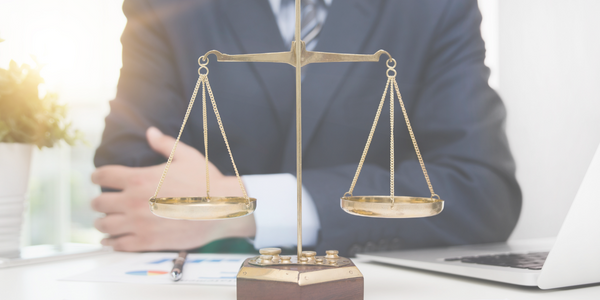We dare to say that the start-up activity of the VGA Academy for Commercial Conflict Management on March 14, 2023 was a successful event. Under the theme “Actualia Arbitration”, the following topics were discussed: “What may companies expect from arbitration?”, “Arbitration and M&A disputes” and “The arbitral tribunal and the ordinary courts: no watertight partitions”.
The limited but sharp minded, interested and critical audience provided an interactive – and with moments spicy – debate. We had no choice but to examine a number of things once more and highlight them in an article.
-
Anti-money laundering obligations for arbitrators?
One of the participants asked – quite rightly – whether arbitrators are obliged to report a money laundering crime of which they become aware during the arbitration.
Someone in the audience suggested to consult the lawyers assisting the parties in this case and ask them about their knowledge of the situation. According to other participants, arbitrators were not subject to such reporting obligations in the absence of express legal provision.
We dove into the books again.
Anti-money laundering law: general principles for lawyers
Let’s first set out the general principles. The anti-money laundering obligations for lawyers are laid down in the Anti-Money Laundering Act (Act of 18 September 2017).
According to Article 5, §1, 28°, this law applies to lawyers when they:
- Assist clients in preparing or carrying out transactions related to the purchase or sale of real estate, management of money, contributions to companies and trust transactions,
- Act in the name and on behalf of their clients in financial or real estate transactions.
Transactions involving funds of questionable origin must be reported (for the legal definition of transactions “to be notified”, see Article 47). Lawyers must make this notification to the President of their bar (“Stafhouder”) (Article 52).
Lawyers are exempt from this reporting obligation when they are consulted to determine the legal position of clients or defend or represent clients “in or in connection with legal proceedings, including advice on initiating or avoiding legal proceedings” (see Article 53).
Anti-money laundering law: application within arbitration
The reporting obligation provided for in the Anti-Money Laundering Act does not relate to arbitration, according to the legislator in its preparatory works (see Parl. St. Chamber 2012-13, No. 53/2743/003, 36-37).
In any case, lawyers who assist parties in an arbitration benefit from the above-mentioned exemption under Article 53.
Arbitrators do not fall within the scope of the Anti-Money Laundering Act at all. They are not covered by Article 28. Further, arbitrators do not have professional secrecy. Contractually, they do commit to confidentiality.
Besides arbitrators are not considered a public authority within the meaning of Article 29 of the Code of Criminal Procedures (see Parl. St. Chamber 2012-13, No 53/2743/003, 26). This article stipulates that public authorities that become aware of crimes or misconduct must report this to the public prosecutor’s office. This article does not apply to arbitrators.
We conclude that arbitrators are not obliged to report criminal offences, nor transactions in breach of anti-money laundering legislation. Nevertheless, like anyone who is not bound by professional secrecy, they have a right to report. A contractual exclusion thereof is, to our opinion, impossible, because it is void as it would violate the public policy and order.
We do not think it is a plausible option for arbitrators to recur to the lawyers assisting the parties. These attorneys do not have the obligation to report on anti money laundering activities. If they do so and/or share details with the arbitrators, they could be even violating their professional secrecy and committing a criminal offense under Article 458 of the Code of Criminal Procedures.
-
Arbitration a solution to non-competition discussions?
(evidence) problem?
In disputes concerning the violation of non-compete clauses, we see a recurring (evidentiary) problem. For the plaintiff, victim of the violation, it is often very difficult to meet its burden of proof. The most relevant information to prove that the other party has provided unlawful services to third parties, in violation of the contractual agreements, is in the hands of the “violator” himself: invoicing, extracts from accounting, contracts, etc.
In legal proceedings, the production of these documents may be requested to the court when there are “serious and certain indications that a party is holding back a document corresponding to a relevant fact for the settlement of the dispute“. The requirements for this measure are strict. The production of accounting and other documents is rarely rather than frequently approved by the court in this type of disputes. The reason for this is simple: the plaintiff often cannot provide sufficient evidence of the “serious and certain indications”. The initial (evidence) problem is an obstacle to obtain any more evidence.
Insights after the VGA Academy
After the start activity we could talk about this topic with one of the participants. We wondered whether an arbitration clause could provide a solution in these cases.
An arbitral tribunal cannot compel the parties to bring certain documents into the proceedings. Nevertheless, parties can determine (in advance) the scope of their information exchange during the arbitration. They may also stipulate that only certain aspects of the contract, in the event of a conflict, will be subject to arbitration. This is a suitable technique for highly technical and/or very factual discussions, for example about valuations, patents, targets and … non-compete agreements.
The limitation of the exchange of information between parties lies, of course, with the parties themselves. They shall determine whether and under what conditions they shall choose arbitration. Clear and fair agreements on this in tempore non suspecto could offer solace.

Contact
Laura Van Gompel
Lawyer – Managing Partner
- Corporate law
- Privacy & Technology
- International Contracts








